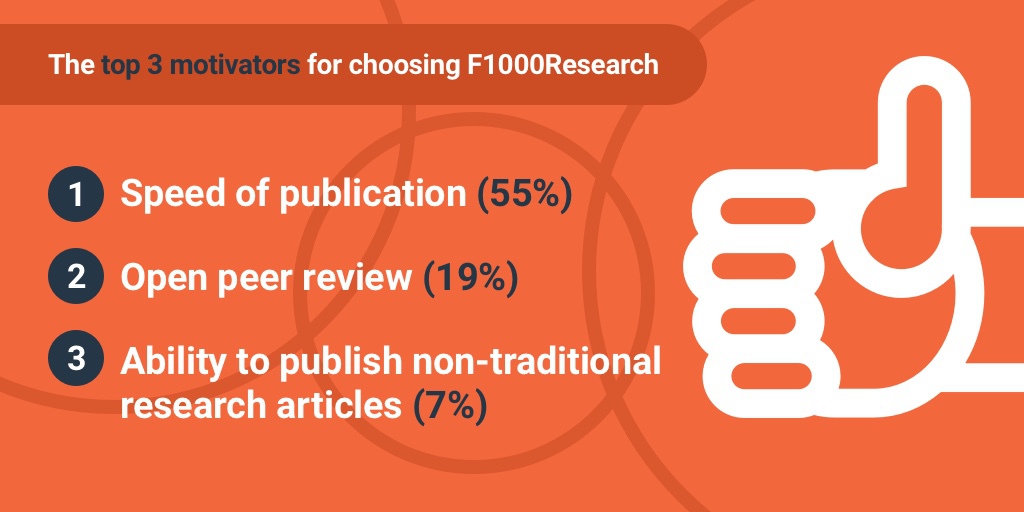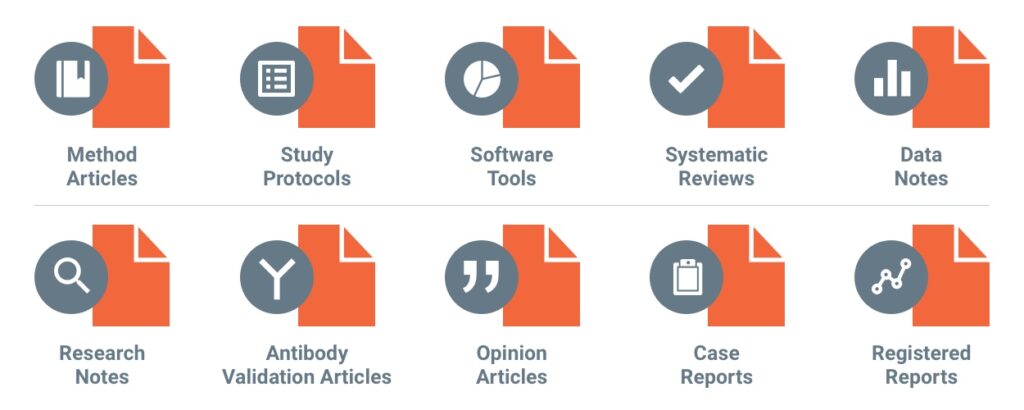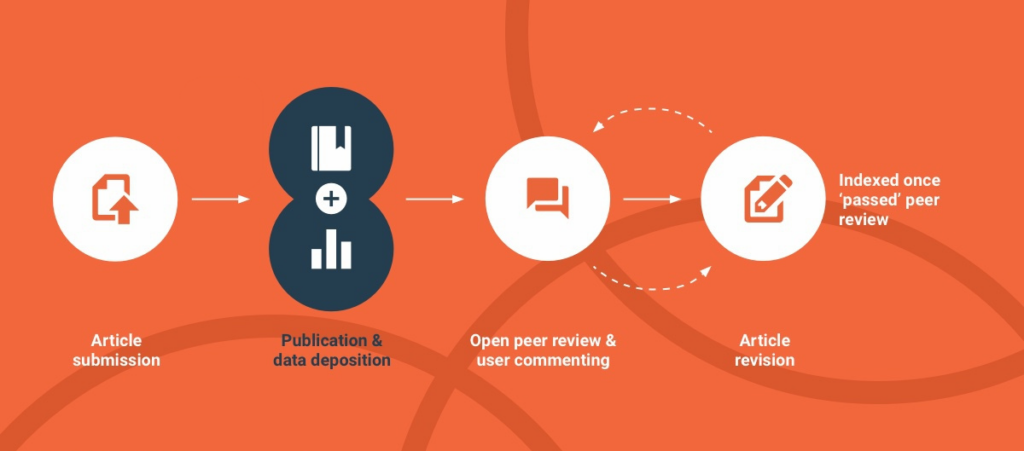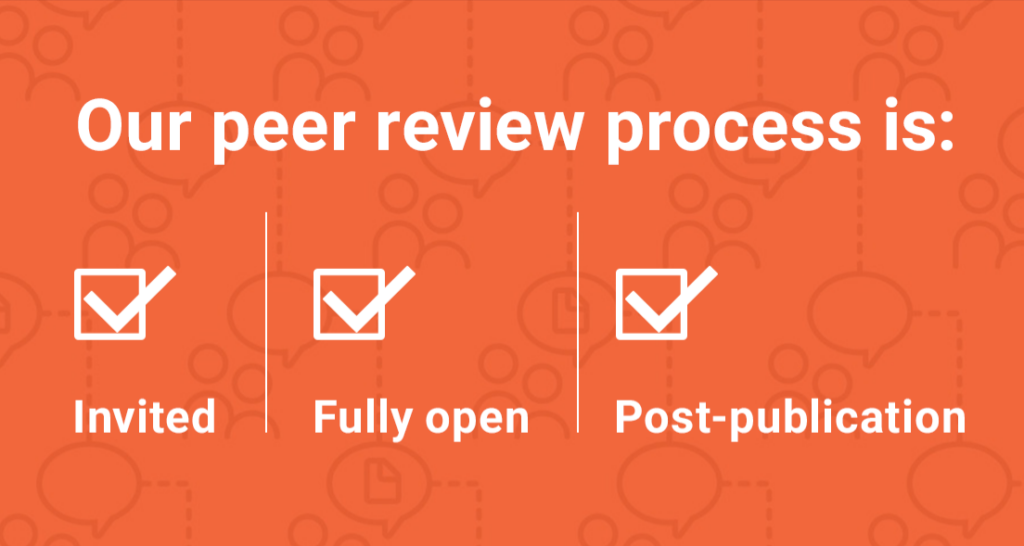Discover the future of open research
Rapid and transparent publication with F1000Research
Submit your research todayOpen research publishing, open to all disciplines
The publishing landscape and the way we assess research is rapidly shifting, with open research practices gaining momentum. But, how can you keep up whilst maximizing the quality and impact of your research?
F1000Research might just be exactly what you are looking for.
F1000Research is an open research Platform offering researchers open and rapid publication of diverse research outputs across all subject areas.
Read on to uncover why you should choose to publish your research openly on F1000Research.
Maximize your research impact with rapid publication
Our speed of publication is among the top reasons our authors choose to publish with us. In fact, our current turnaround time from submission to publication allows us to publish 3 times faster than the average scholar publisher, based on a recent study on Scholarly Kitchen.
With F1000Research, you don’t have to wait for your research to start making an impact. Your work becomes easily and immediately accessible for others, and can inform responses to societal challenges in real time.

Avoid publication delays with our open peer review process
Peer review on F1000Research is formal, invited, and fully open. Peer review reports are published alongside the article, together with reviewer names and affiliations boosting the process’ transparency.
Unlike most traditional publishers, peer review on F1000Research takes place after an article has been published openly on the Platform, so your research can start being read and used while expert reviewers assess it.
A reviewer status next to each article makes it clear to readers whether a paper has been peer reviewed.
We are improving the peer review process by:
Enabling conversation within the research community with fully transparent peer review
Reducing the possibility of bias, as everything is openly available to all
Sharing reviewer feedback so everyone can read the reports
Empowering authors to lead the process by suggesting reviewers themselves
Accelerating the pace of discovery by publishing research before it undergoes peer review
“Some of the highest quality and most useful reviews I’ve had on any papers anywhere were on papers published at F1000Research. Not free of criticism of the work! But I know I at least write more thoughtfully as a reviewer when I will be signing my name.”
Kevin J. Black, Professor of Psychiatry, University of Washington School of Medicine
Tell the full story of your research by publishing a range of article types
At F1000Research, we let authors decide what they wish to publish. That’s why we offer many article types that go beyond the traditional Research Article so that you can maximize the potential of your research.

Accelerate the pace of discovery and get credit for your work with open data
As part of our open data policy, we ask our authors to share all data underlying their research findings in an open format, together with details of any software used to process the results.
It is essential that others can see the source data in order to be able to replicate the study and analyze the data, as well as in some circumstances, reuse it.
But, what’s in it for you?
![]() Boost the credibility of your research
Boost the credibility of your research
Open data enables replication and validation of your research, which in turn boosts its credibility and robustness. By sharing your data openly, your entire research project becomes more transparent.
![]() Enhance the visibility of your research
Enhance the visibility of your research
Increase the discoverability of your research by reciprocally linking your article and its related datasets. Plus describing your data with rich, meaningful, machine-readable metadata makes it easy for humans and computers to find use.
![]() Progress in your career
Progress in your career
Researchers can benefit from increased credit and recognition for their outputs by sharing their research data, which in turn may lead to increased opportunities for collaboration – even across disciplines. Plus, one 2019 study suggests that open data can generate up to 25% more citations!
![]() Develop a better understanding of your field
Develop a better understanding of your field
Open data supports learning and enables a deeper, richer understanding of the research topic – this is particularly useful in teaching. as students are able to interrogate raw research data for themselves.





